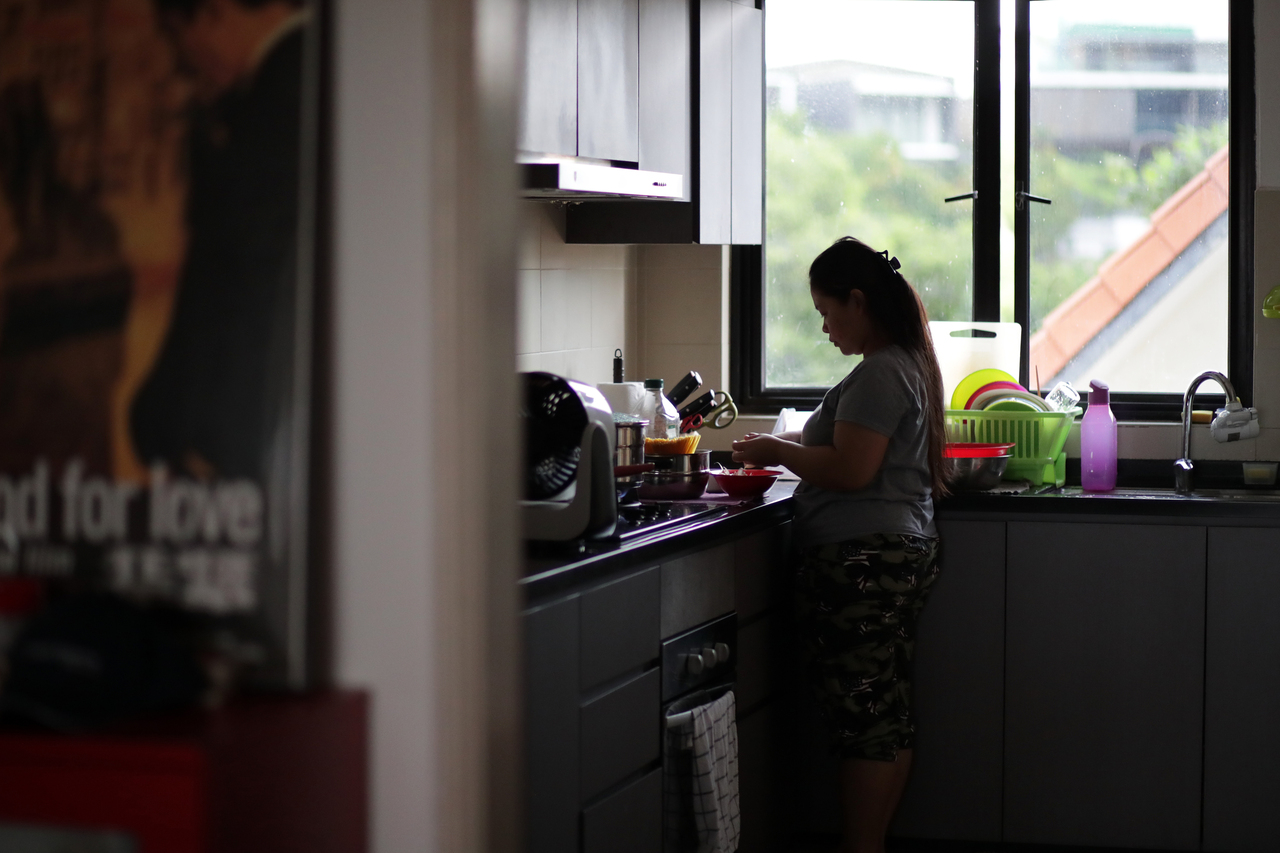New rule makes transfer of domestic helpers easier
Move comes as nearly no new foreign maids entering S'pore due to Covid-19 travel curbs
Sign up now: Get ST's newsletters delivered to your inbox

Employment agencies will be able to help clients cancel their helper's work permit, even if she does not yet have a new employer.
ST PHOTO: GIN TAY
Employers will soon be able to transfer domestic helpers more easily to other households if they no longer need their services.
This move to keep more maids in Singapore comes as nearly no new foreign domestic workers are entering the country due to Covid-19 travel restrictions worldwide.
From Wednesday, employment agencies will be able to help clients cancel their helper's work permit even if she does not yet have a new employer, the Ministry of Manpower (MOM) said in an alert to employment agencies last Friday.
Agents will then take over the management of the maid during the transition period before she finds a new employer.
But they will have only the duration of her 14-day Special Pass - which will be issued when her work permit is cancelled - to find her a new employer, after which they must repatriate her if unsuccessful.
Employment agents said the new rule incentivises an employer to transfer the helper instead of sending her home, as the employer can save on the air ticket while the agent now risks having to pay for this.
Currently, the original employer has to provide the new employer with a letter of consent for the new work permit application, and continue to pay for the helper's upkeep during the transition period if she has been returned to the agency.
The original employer also has to pay for the air ticket home after a helper's work permit is cancelled, if she is not moving to a new employer.
Employment agencies that want to take on the added responsibilities while facilitating the transfer of maids should register with MOM by May 31. They will be listed on the ministry's website.
In the e-mail alert seen by The Straits Times, MOM advised agencies to source for helpers who are already in Singapore and facilitate their transfers between employers, as worldwide travel restrictions due to the coronavirus have reduced the number of helpers entering the country.
MOM also said that during a helper's transition period in between employers, agents will be subject to additional licence conditions under the Employment Agencies Act.
They will have to provide acceptable accommodation, as well as upkeep and maintenance - which includes adequate food and medical treatment.
They will also have to buy and maintain medical insurance coverage of at least $15,000 for the helper, and pay for her repatriation if a new employer is not found before her Special Pass expires.
Ms K. Jayaprema, president of the Association of Employment Agencies (Singapore), cautioned that agents may factor into their fees the higher costs of having to pay for the upkeep of the helper and her flight home if they cannot find a new employer.
"Employers should also be aware that entry approvals for new helpers are not coming through and it will probably be hard to find a replacement," she said.
Employers can already transfer helpers under the existing rules, she noted.
The association set up a transfer portal last month to help match domestic workers and potential employers. About 20 agencies and 1,000 employers have signed up.
Singapore Accredited Employment Agencies Association president Brian Tan said that the new policy aims to keep helpers in Singapore as supply from overseas has stopped due to Covid-19.
But it assumes domestic helpers want a transfer and are able to find a better opportunity for themselves, when they may actually prefer to return to their families due to the uncertainties of the Covid-19 outbreak, he said.
"If it is a supply issue, then the focus should be on how to find a safe and low-risk way to start bringing new domestic workers into Singapore," he said.


